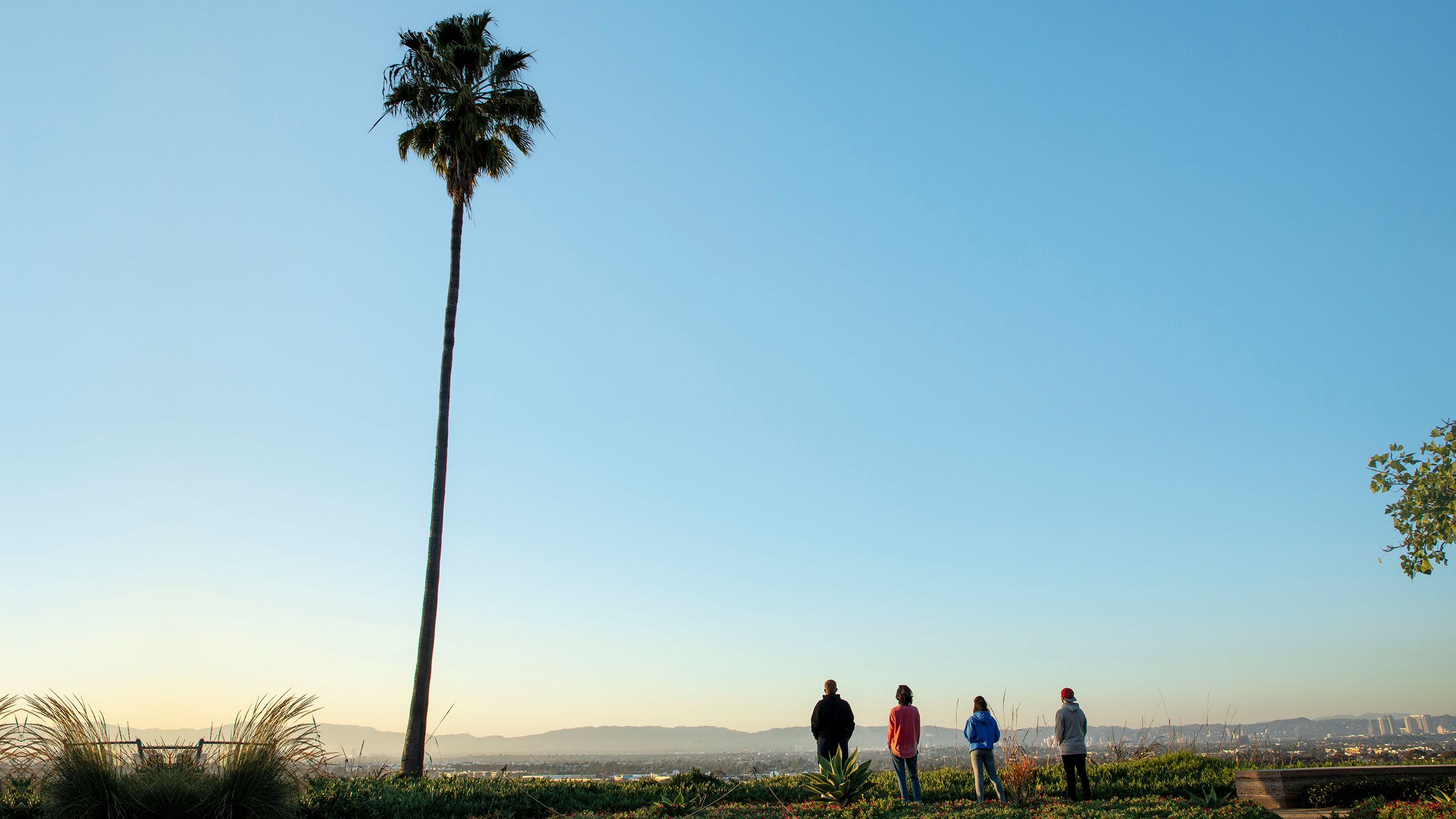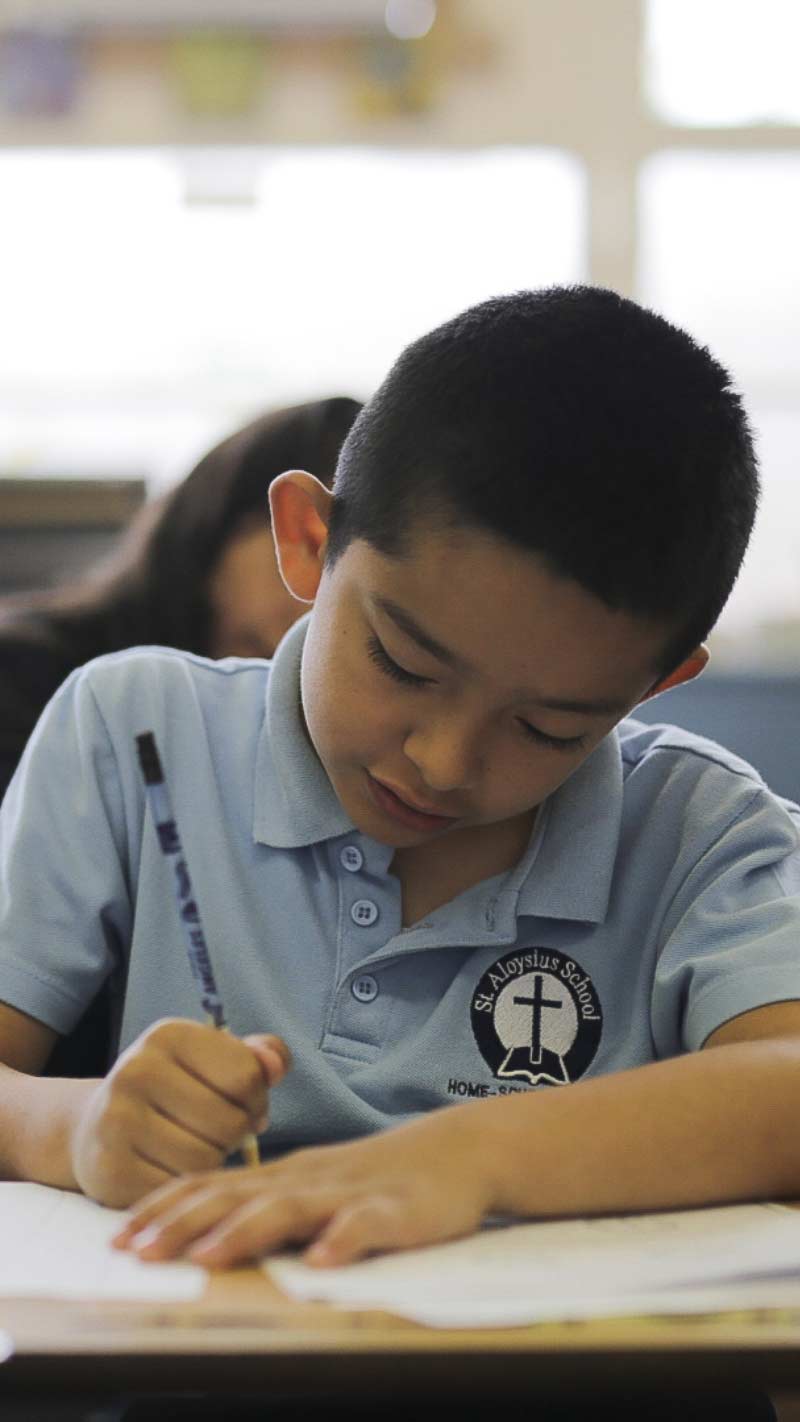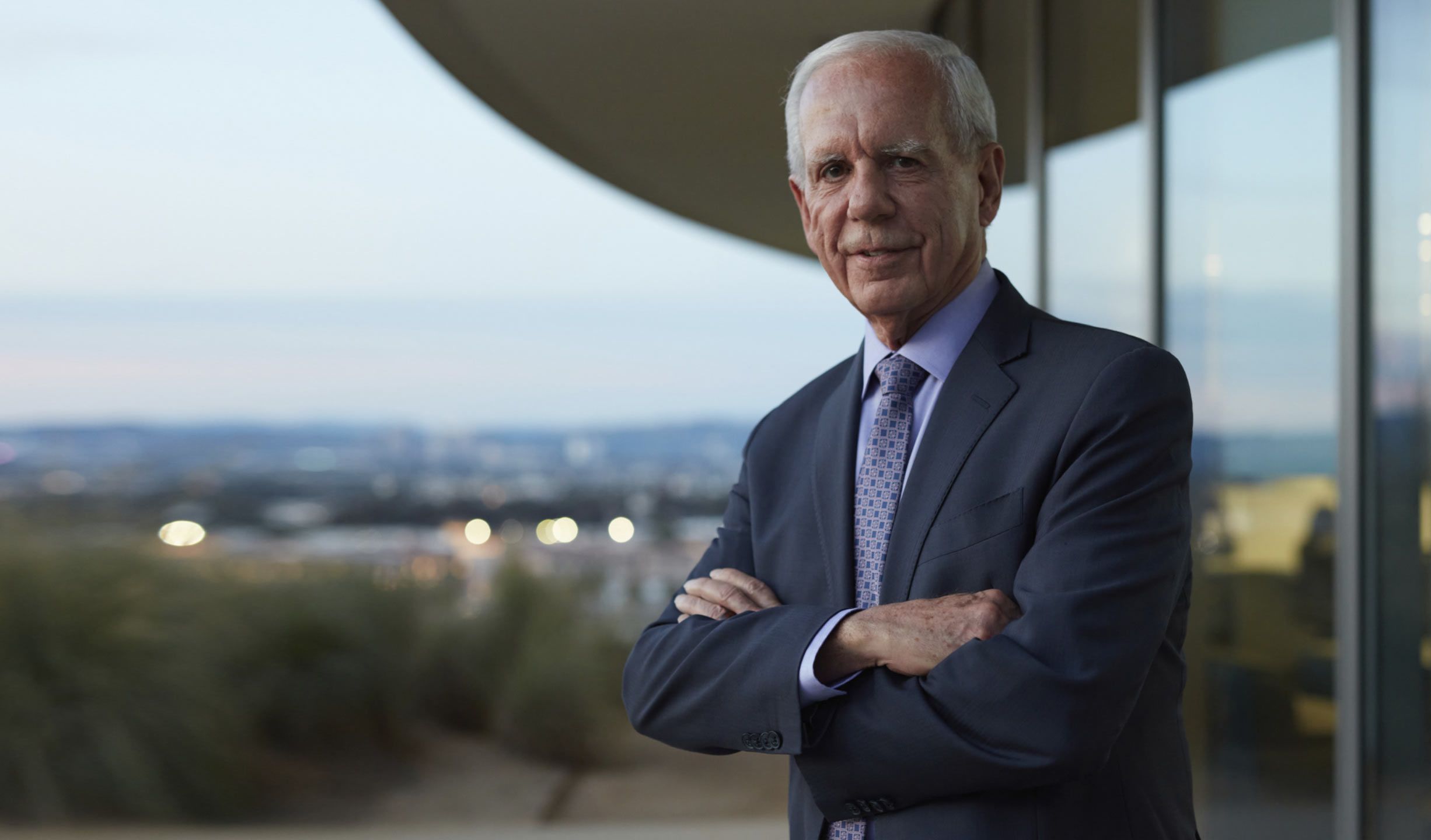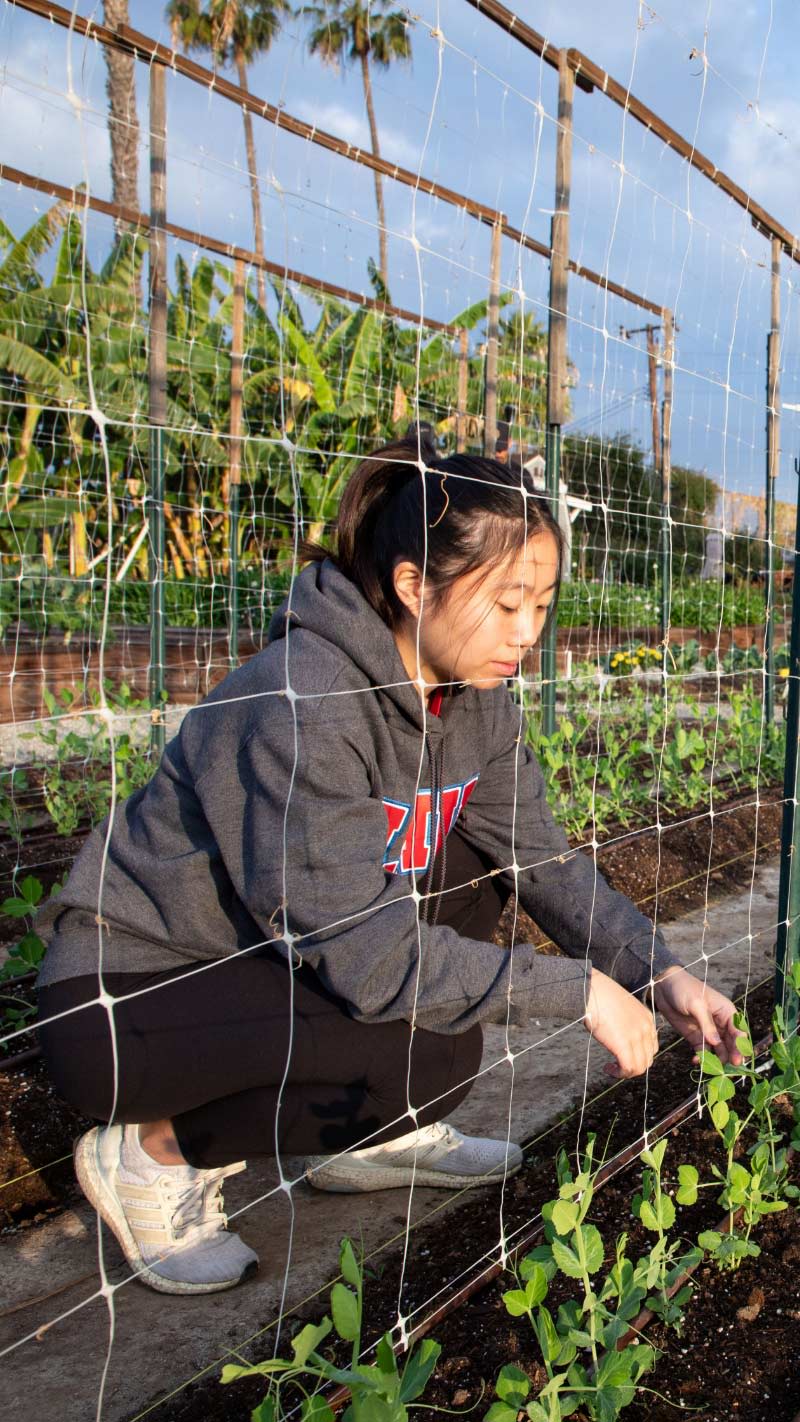Research for Equity at LMU
Loyola Marymount University research centers drive community change and a more equitable world.

At Loyola Marymount University, making the world a more equitable place is intrinsic to its mission. Reflecting a deep commitment to diversity, equity, and inclusion, LMU’s centers and institutes lead research with impact, bringing data out of the academy into the world. Together, these thought leaders work to ensure that all people are reflected in policy decisions on issues that matter in their daily lives — from education, to disability rights, to healthy, green neighborhoods.
Language Equity in the Classroom
Established in 2006, the Center for Equity for English Learners (CEEL) in the LMU School of Education supports millions of K-12 English Learners, or ELs, across California and the nation through research, policy, and professional development. “We’re really engaged with the field,” explains Magaly Lavadenz, Ph.D., executive director of CEEL and Leavey Presidential Endowed Chair in Moral and Ethical Leadership at LMU. “We roll up our sleeves and partner with districts, with other nonprofits, with other universities to address the needs of English learners.”
The unique academic and social needs of ELs are underserved, and CEEL takes a multi-pronged approach optimized for impact. Among their many policy initiatives, CEEL has led a decade-long series of studies to examine how effective California school districts are in serving the needs of ELs. The center advocates for policy change through its findings, identifying gaps in student support and providing recommendations to school district administrators. To widen the impact, they also produce resources that empower educators and families to use data to advocate for ELs in their communities.
What lies at the heart of everything they do is simple human empathy. “Educators have to know who your students are first — know their stories, know who they are as human beings,” Lavadenz says. “If you’re in a leadership position, encourage your educators to do that first.”
This empathy also informs how they track impact through data. “We’re able to track English learners’ progress over time,” Lavadenz says. “Not just in the quantitative, but in the stories of their successes, of their joy and their experiences.” Fundamentally, she emphasizes, there’s more to the experience than just the classroom. “The system is broader than just the school or the district — it’s also family and community members.”
Those stories of joy and success form the backbone of CEEL’s policy briefs and build trust and rapport with their partners, including dozens of districts throughout California. CEEL’s unique approach has transformative power, with initiatives on every level working to provide ELs with superior educational opportunities and academic outcomes.
“There’s so much work to be done,” Lavadenz says, “and we have to all do it together.”

Equity in Law and Law-making
Founded in 2018 by Tony Coelho, former congressman, LMU alumnus, and primary sponsor of the Americans with Disabilities Act, the Coelho Center for Disability Law, Policy and Innovation makes an iconic disability rights movement slogan concrete: nothing about us without us. “Our work is about breaking stigma and promoting innovation,” says Katherine Pérez, J.D., director of the center. “We’re in the business of critiquing structures that exclude.”
The center’s goals of inclusion and influence function as two sides of the same coin. On the LMU Loyola Law School campus, the Coelho Center has built a community dedicated to seeking positive change for people with disabilities on every level — from ensuring equity in the classroom to advocating for greater representation of people with disabilities in the legal field. While building the pipeline of students with disabilities who attend law school is a chief priority for the center, its collaborations span the seven LMU schools and colleges. “Each college is impacted by disability,” said Coelho on his initial gift. “As a person with a disability, I can be very successful just like anyone else — and if you give me an opportunity to fail, then I might have a chance to succeed.”
The Coelho Center’s impact extends beyond campus. Recently the center collaborated with Verizon to pilot a new kind of accessible audio wayfinding technology — an infrastructure-free audio system designed by and for individuals affected by vision impairments. Over the past four years, more than a hundred individuals — many of whom have disabilities — have come through the Coelho Law Fellowship and Heumann-Armstrong Educational Leadership Awards, bolstering the pipeline of students with disabilities into law and leadership. These students come from over 20 states and four countries — a critical step towards creating a network of equity-minded leaders across the globe. “This fellowship is the first-of-its-kind and the only pipeline program that brings together people with disabilities interested in legal education,” says Pérez. “People with disabilities bring a different perception to the law. We cannot collectively achieve positive change without prioritizing their voices and experiences.”

Equal Access to Healthy Neighborhoods
Founded in 2011, the Center for Urban Resilience (CURes) works to create more resilient, just cities where diverse communities and ecosystems thrive. Together, their urban social-ecological research, outreach programming, faculty fellowships, and network of community partners form an academic community advancing equity and positive change in urban contexts.
“Our fundamental philosophy,” explains Eric Strauss, Ph.D., executive director for CURes and President’s Professor of Biology, “is that healthy urban communities include all of the traditional ecological measures — such as clean air, water, and soils — but are also just communities, in which people say they love where they live.” The result is a research-meets-action powerhouse, covering topics as diverse as human-wildlife conflicts, tree canopy mapping and prioritization, and restorative justice programming that works within a wide range of academic institutions in Los Angeles and beyond.
“Research can help create more resilient and equitable places,” Michele Romolini, Ph.D., managing director and lead social scientist for CURes, says. Their tree canopy assessment initiative mapped the tree cover in Los Angeles County, using spatial data to identify opportunities for canopy expansion. Together with their partners, CURes brought their data to the Gateway Cities region of Los Angeles, where they held “tree summits” to help participants prioritize planting locations in their own neighborhoods. The region is a densely populated industrial corridor, with many low-income, transit-dependent residents, many of whom are people of color. Air pollution levels are high, trees — nature’s air filter — are in short supply. “We know tree planting decisions are often made without the community,” Romolini adds. “This type of project can help direct public resources towards places that are priorities for its residents.”
“Resilience builds upon our understanding of sustainability,” Strauss said. “Change is constant…our ideas of equity and fairness will evolve. It’s critical that we use resilience in support of the mission of diversity, equity, and inclusion.”
LMU centers and institutes ignite change at the intersection of academic research and community empowerment. Equipped with deep expertise in their field and fueled by a common mission, their researchers are creating a more just and equitable future.

This custom content is sponsored by Loyola Marymount University and developed by Inside Higher Ed's sponsored content team. The editorial staff of Inside Higher Ed had no role in its creation.


